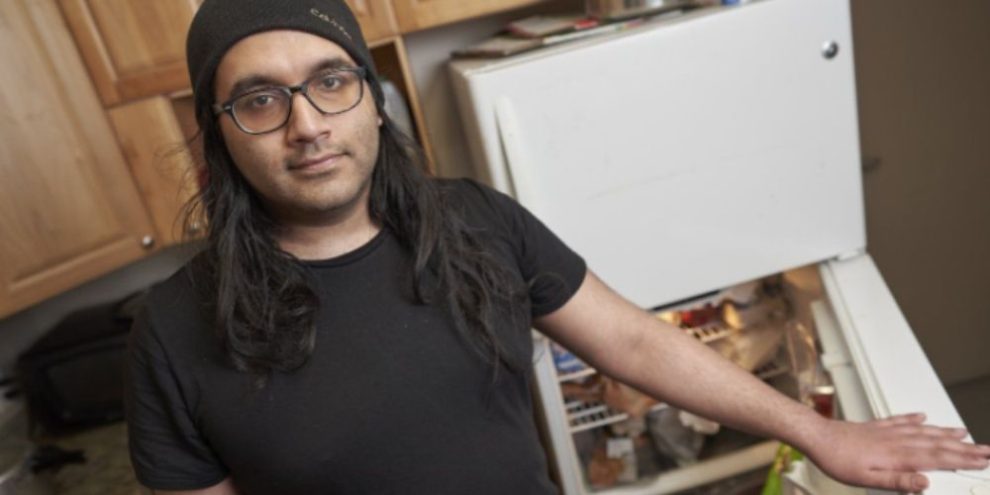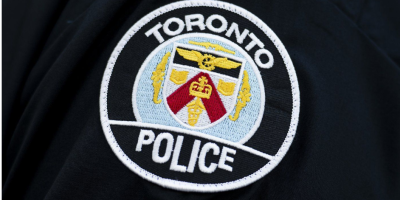
By Brett Bundale, The Canadian Press
Chanakya Ramdev has changed where he shops for groceries, he no longer goes to restaurants and he cooks all his meals at home.
But the Waterloo, Ont., resident says he’s still struggling with soaring food prices.
"The cost of living is up across the board, especially with food," Ramdev says.
"It's becoming unaffordable to live in Ontario."
With the province gearing up for an election in June, experts say mounting concerns about the rising cost of goods is expected to dominate the campaign trail.
Canada's inflation rate hit 6.7 per cent in March as the cost of gasoline, groceries and other items rose at the fastest pace in more than three decades, Statistics Canada said last month.
Housing prices in Ontario are among the highest in the country, with average home prices now exceeding $1 million in some areas, according to the Canadian Real Estate Association.
Gas prices in the province are nearing two dollars a litre after surpassing the all-time record —reached in March — last week.
A recent poll suggests the spiralling cost of everyday goods is a key issue for Ontario voters. Sixty-two per cent of Ontarians who responded to an Abacus Data survey in April said their household income was falling behind the cost of living.
It indicated the top issue for Ontario voters heading into the election is reducing the cost of living, followed closely by improving housing affordability and accessibility.
"Life wasn't very affordable in Ontario — particularly in Toronto — before inflation kicked up. Now inflation has made it even more expensive to live here," says Sheila Block, senior economist with the Canadian Centre for Policy Alternatives.
"Nobody's happy about rising prices but inflation doesn't affect everybody equally. Lower-income families and individuals spend more on essentials like food, housing and transportation and when prices go up they have less ability to absorb those higher costs."
There's little a province can do to rein in sky-high inflation, experts say.
Factors pushing up prices, such as the war in Ukraine, supply chain issues and strong demand for goods, are all outside the control of a province, they say.
"These are issues that are above the provincial level," University of Ottawa economics professor Mario Seccareccia says. "It's largely an international phenomenon."
Yet that hasn't stopped the Ontario government — and now campaigning party leaders — from announcing plans to offer residents some relief from staggering inflation.
Ontario eliminated licence-plate-renewal fees in March and is refunding fees that drivers have paid since March 2020. The Progressive Conservatives also removed tolls on two highways and implemented a temporary gas tax reduction that will take effect in July, in the name of affordability.
“We know the rising cost of living has made many things more expensive, and can make it harder for families to make ends meet,” Premier Doug Ford said earlier this year.
The Liberals are pledging to make all transit fares across the province $1 per ride until January 2024 and to remove the provincial portion of the HST on prepared foods under $20 such as rotisserie chicken.
These promises are appealing to voters, but experts say they're not the most effective way of helping people struggling with rising costs.
For some residents, refunding $120 in licence-plate-renewal fees or saving on commuting costs as a result of a $1 transit fare could help them make ends meet, but others might not even notice — let alone need — the extra cash.
"These are good gimmicks to get you re-elected," Seccareccia says. "But it isn’t the best way of addressing affordability."
Instead, the focus should be on aiding lower-income earners, who tend to be disproportionately impacted by higher prices, experts suggest.
"When you see things like the dramatic rise in food prices we have to be concerned about people with lower incomes because they will be most harshly impacted by rising costs," says Valerie Tarasuk, University of Toronto nutritional sciences professor.
Raising the minimum wage, indexing social assistance and senior payments to inflation and raising the basic personal tax credit would help those with the greatest need, experts say.
The Progressive Conservative government raised the minimum wage this year to $15 an hour, after cancelling an increase to that amount after they won the 2018 election, and is planning to boost it to $15.50 in October, tied to inflation.
The NDP is pledging a $16 minimum wage in October, rising to $20 in 2026. The party also says it would increase welfare and disability support payments by 20 per cent.
The Liberals are promising a $16-per-hour minimum wage as of January, before creating regional living wages, which experts say could be as high as $22 an hour in Toronto.
In addition, increasing the supply of affordable housing — which the NDP, PCs and Greens are pledging to do— and taxing capital gains on the sale of personal residences to help fund it could help, they say.
"A hefty capital gains tax would discourage house flipping and the use of real estate as an investment," Seccareccia says
Meanwhile, Chanakya in Waterloo says even though he can still put food on the table, he'll keep watching the Ontario election campaign closely for some relief from rising food prices.
"I can't go to restaurants anymore because the prices have doubled so I'm cooking at home every day now," he says.
"I used to go to Sobeys because I found the quality better but now I go to Walmart. I'm doing what I can but it's still expensive."
Chanakya adds: "Maybe it's time for the government to get involved and set a roof on how much a company or restaurant can increase prices because food is critical but it's becoming unaffordable."
This report by The Canadian Press was first published May 8, 2022.
Feature image - Chanakya Ramdev poses for a photo in the kitchen of his home in Waterloo, Ont. on Tuesday, April 5, 2022. Ramdev has changed where he shops for groceries, he no longer goes to restaurants and he cooks all his meals at home - The Canadian Press - Geoff Robins.






